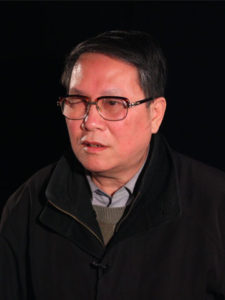The Confucius Institute for Scotland in the University of Edinburgh, in association with SCEN, is delighted to bring to Edinburgh this award winning show from Karin Schäfer of Figuren Theatre blending puppetry, video and animation.
Tickets for the public show at 7pm on 9th June will be on sale from 6.30pm at the venue- Central Hall, West Tollcross. Advance ticket sales are available via the Queens Hall box office
With two free shows for school groups running at 10.30 and 13.00 the excitement about this show is building. But for those not in school there is still an opportunity to see the show in a ticketed evening performance at 19.00- read on!

Zheng He-When the Dragon Ships Came relates the tale of the fantastic journeys of this famous Chinese explorer who with his fleet of more than 300 enormous ‘dragon ships’ sailed via Indonesia, India, and the Arabian Coast to Africa – almost 100 years before Columbus set sail for America. While every child in China knows the story of Zheng He’s travels, here, his adventures remain largely unknown.

This production has won many plaudits for its innovative set design which features interaction between the screen and the action on stage. The animated films, video clips, shadow images and masks form a constantly changing visual narrative while the multi-lingual audio and musical score ensure that audience members are fully engaged by the production
Click here to see a short video extract.

The evening show is open to the public and will take place from 7pm-8pm in Central Hall, West Tollcross, EH3 9PB.
Doors will open at 6.30pm. There is no age restriction on this production but age 7+ is recommended.
Tickets are £5 per single ticket or £15 for a family of 4
(2 adults+ 2 x 12yrs or under OR 1 adult + 3 x 12yrs or under).
Bookings for this event at Tollcross Central Hall is through the Queen’s Hall Box office.You can book in any of the following ways
Online: 24hrs a day at www.thequeenshall.net
By telephone: (0131) 668 2019.
Telephone bookings operate from 10am – 5pm Monday to Saturday. Credit & debit card bookings are accepted along with customer enquiries on the above number.
In person: The Box Office is open from 10am – 5pm Monday to Saturday on non-concert evenings, or until 15 minutes after the start of a Queen’s Hall performance.
By post: Postal bookings are accepted with cheques made payable to “The Queen’s Hall Box Office”. Postal bookings should be sent to The Queen’s Hall Box Office, Clerk Street, Edinburgh, EH8 9JG.
By fax: Bookings can be accepted by fax if card details for payment are included. The fax number for the Queen’s Hall is: (0131) 668 2656.
Schools which wish to send a group of students (not necessarily students studying Mandarin) should in the first instance call us on 0131 662 2180 or email info@confuciusinstitute.ac.uk.
 Kai Vogelsang is professor of Sinology at the University of Hamburg. He studied Sinology and Economics in Hamburg and Taipei receiving a PhD in Hamburg (1997) and subsequently in Munich (2004). His fields of research are Chinese history of the pre-Qin period and the late 19th/early 20th centuries with a focus on conceptual history.
Kai Vogelsang is professor of Sinology at the University of Hamburg. He studied Sinology and Economics in Hamburg and Taipei receiving a PhD in Hamburg (1997) and subsequently in Munich (2004). His fields of research are Chinese history of the pre-Qin period and the late 19th/early 20th centuries with a focus on conceptual history.






 Professor Qin Hui 秦晖 is Professor of History at Tsinghua University, China. His research has covered several fields in economic history, social history and history of ideas. He has published more than twenty books including Fields and Garden Poetry and Rhapsodies (田园诗与狂想曲), Ten Treatises on Tradition (传统十论), Out of the Imperial System (走出帝制), Common Baseline (共同的底线), Issues and Isms (问题与主义), Revelations from South Africa (南非的启示).
Professor Qin Hui 秦晖 is Professor of History at Tsinghua University, China. His research has covered several fields in economic history, social history and history of ideas. He has published more than twenty books including Fields and Garden Poetry and Rhapsodies (田园诗与狂想曲), Ten Treatises on Tradition (传统十论), Out of the Imperial System (走出帝制), Common Baseline (共同的底线), Issues and Isms (问题与主义), Revelations from South Africa (南非的启示). Born in Kiev, Ukraine, in 1964 Yuri Pines works at the Hebrew University of Jerusalem. His research focuses on political thought of pre-imperial (pre-221 BCE) China and on the political culture of imperial China. He is also involved in studies of political, social, and religious history of pre-imperial and early imperial (Qin) China and of early Chinese historiography.
Born in Kiev, Ukraine, in 1964 Yuri Pines works at the Hebrew University of Jerusalem. His research focuses on political thought of pre-imperial (pre-221 BCE) China and on the political culture of imperial China. He is also involved in studies of political, social, and religious history of pre-imperial and early imperial (Qin) China and of early Chinese historiography.